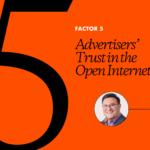It’s a natural impulse when you become a parent — to reach out to other parents for support and advice. For first-timers especially, the experience of being stuck at home with a baby or toddler can be overwhelming — there’s so much you don’t know, and so many questions you want to ask. Social media and online parenting forums can feel like a lifeline.
But there’s a problem: the information and advice offered in parenting forums can often be questionable, misleading, or downright inaccurate. Medical information is a case in point: online parenting communities can be hotbeds of misinformation and disinformation about everything from the supposed risks of ultrasounds to the side effects of childhood vaccines.
Even before COVID-19, vaccine myths were rife in online discussions. A 2019 study by the Royal Society of Public Health in the UK found that half of all parents with small children had been exposed to misinformation about vaccines on social media. That’s playing out in an uptick in infectious diseases: measles outbreaks in the U.S. in 2014, 2015, and 2017 have all been linked to vaccine hesitancy caused by misinformation about potential side effects.
Parents suffer from a lack of trusted and credible content online
Dr. Seema Yasmin, a specialist in medical misinformation who debunks medical myths in publications like Wired and the Dallas Morning News, told Mother Jones that parents are particularly susceptible to health misinformation because they are “left alone, without meaningful conversations from trusted, credible sources.”
In the absence of those credible sources, parents will naturally listen to voices who seem to provide certainty amid the uncertainty of first-time parenting. Because myths are repeated so often online, they take on the appearance of truth, a cognitive bias known as the illusory truth effect. The unfortunate — and sometimes tragic — outcome is that parents end up making decisions for their children that are based on inaccurate information.
Publishers are ideally placed to host trusted online parenting communities
But what if parents could access a supportive online community that takes active steps to provide accurate, trustworthy, and credible content? This is a role that quality-focused publishers already fill when it comes to researching and publishing editorial content — and it means publishers are highly qualified to host online parenting communities, too.
The benefits to publishers of hosting online communities are already well known. Our own research with our publisher partners shows that when readers register to become community members, their engagement levels soar. Registered users spend 35% more time onsite than casual visitors, view twice as many pages, and deliver 4x greater average revenue per user. As a whopping 71% of Millennial parents look to online sources for parenting advice, the scale of the opportunity for publishers is quite clear.
Maintaining content credibility requires sophisticated content moderation
But when publishers create communities where anyone can contribute to the conversation, how can they avoid the same deluge of misinformation that plagues social media and other non-publisher-hosted communities? That’s an area where a sophisticated and multi-layered content moderation system like OpenWebOS can help.
Through a mix of AI-powered and human moderation, OpenWebOS creates a trusted environment where parents can expect to find credible content and trustworthy advice. Some of the ways our publisher partners use OpenWebOS to that effect include:
Demonstrating a commitment to quality content: Since August 2021, OpenWeb has vetted all existing and potential publisher partners against evaluations of journalistic integrity created and maintained by the Global Disinformation Index (GDI). Only publishers that meet our OpenWeb Publisher Standards can host an OpenWeb-powered community.
Detecting posts that conflict with community guidelines: Our configurable, AI-powered moderation can detect when a comment is misaligned with the publisher’s Community Guidelines. Comments that show these patterns can be automatically removed, can be flagged to one of our human moderators to review, or can trigger a “nudge”, suggesting the author revise their wording.
Promoting the highest-quality comments: OpenWeb applies algorithms to determine the quality of each comment posted, and brings the highest-scoring comments and replies to the top of the conversation where they can be seen by more people. Importantly, our quality sorting algorithms are based on multiple factors, including the thoughtfulness and depth of the comment as well as the way it’s rated by community members.
Connecting editorial teams and audiences: One of the most powerful ways of combating misinformation is to connect community members with a reassuring expert in the field. With OpenWeb, trusted science and medical journalists can host conversations under relevant articles, bringing an authoritative voice to the conversation and dispelling myths and misinformation.
Find out more about hosting online parenting communities
Every parent needs a supportive community to turn to for advice and reassurance. With a focus on editorial integrity and high-quality information, publishers are ideally placed to host online parenting communities that emphasize content credibility, accuracy, and trust. Find out more about hosting a well-moderated online community with OpenWeb.


